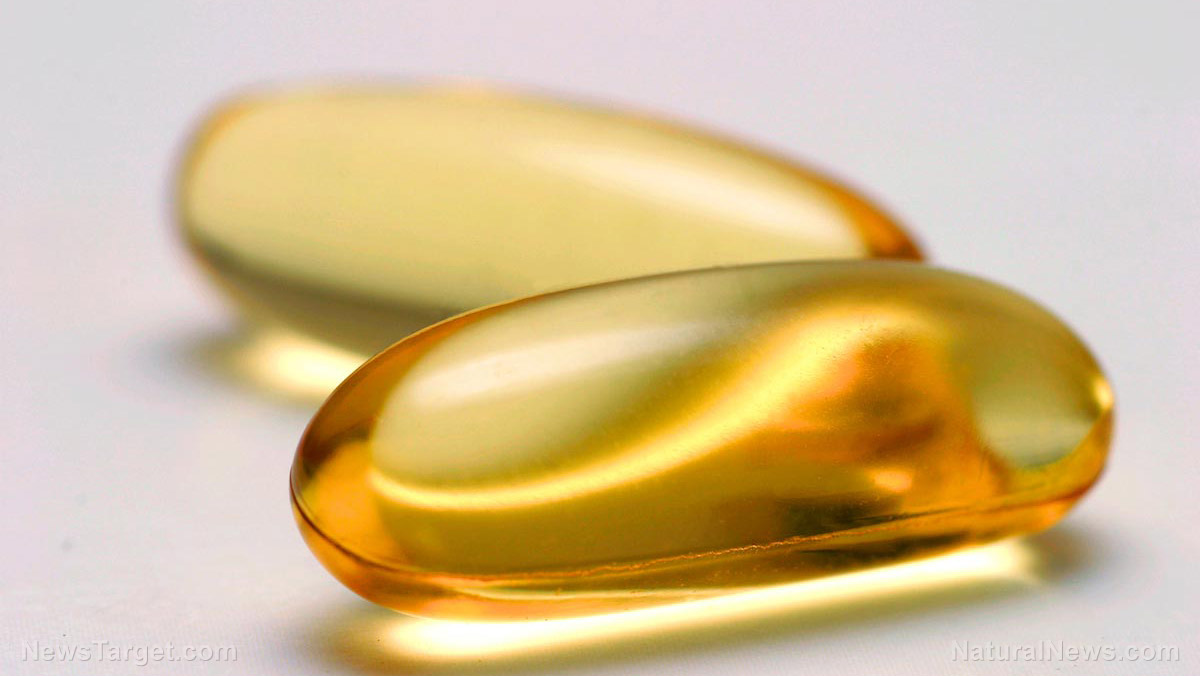 Parler
Parler Gab
Gab
Best nutrients for anxiety
Try to consume more of these nutrients to keep anxiety at bay: 1. Magnesium If you usually feel stressed or tired, check your magnesium intake. Magnesium helps suppress cortisol -- dubbed the "stress hormone" -- production by the adrenal glands. Moreover, magnesium can cross the blood-brain barrier, acting as gatekeeper to stress responders. It also helps prevent stress hormones from flooding the brain. The best food sources for magnesium include leafy green vegetables, cacao, avocado, nuts and seeds. 2. Choline and B vitamins Choline is a recently discovered fat-soluble vitamin. While your body makes choline, nutritionists still advise that you get it from foods to avoid a deficiency. A lack of choline has been linked to a higher risk of anxiety. This is likely because choline is crucial for the production of acetylcholine, a chemical messenger that regulates your body's stress response. You can get choline from egg yolks, animal organs and fatty fish like salmon. Having low levels of other B vitamins, including B12, B6 and B9, has also been linked to a higher risk of mental health problems like mood disorders. 3. L-theanine L-theanine is an amino acid found in green tea and mushrooms. L-theanine helps alleviate anxiety by reducing excitatory brain chemicals that contribute to stress while increasing the chemicals that promote a sense of calm. L-theanine also increases alpha brain waves, which your brain produces when you're relaxed. 4. Probiotics Recent studies have shown that the brain and gut are inextricably linked. Your gut houses lots of bacteria, both good and bad, and tries to balance them. When the gut is in a state of bacterial imbalance because of poor diet or gut problems like small intestinal bacterial overgrowth (SIBO), it makes excitatory brain chemicals that may trigger anxiety and even mood disorders. Probiotics are live cultures of bacteria and yeast found in certain foods. These beneficial microbes can help restore balance in your gut. They are usually found in fermented foods like yogurt, kefir and sauerkraut, but you can also take probiotic supplements.Other nutritional strategies to reduce anxiety
Aside from eating more foods rich in the nutrients listed above, you may want to consider practicing the eating habits listed below to ease anxiety:- Eat a protein-rich breakfast – Protein helps sustain your energy levels. Protein also helps boost your alertness, mental energy and reaction time.
- Choose complex carbs – Complex carbohydrates from whole grains (e.g., oats, brown rice) are said to increase the amount of serotonin in your brain. Serotonin is the key hormone that controls your mood.
- Drink water – Mild dehydration can negatively affect your mood.
- Limit or avoid alcohol – Alcohol can put you on edge and interfere with sleep.
- Limit or avoid caffeinated drinks – Caffeinated drinks improve alertness. But if you have anxiety, it may be better to stick to healthier drinks like decaffeinated tea and fresh fruit juice to avoid jitteriness.
- Eat balanced meals – Make sure your meals have ticked all the right boxes when it comes to nutrients to avoid deficiencies that could lead to mental health problems.
Study shows antioxidants in cheese may protect blood vessels from salt damage
By Rose Lidell // Share
Supplementing with vitamin D found to improve blood pressure in overweight children
By Zoey Sky // Share
Common signs and symptoms of magnesium deficiency
By Olivia Cook // Share
Food supply 101: How to grow edible mushrooms in your home garden
By Zoey Sky // Share
Qatari study finds natural immunity is 97% EFFECTIVE against severe COVID even after 14 months
By Ramon Tomey // Share
Polyphenols in acai found to have a prebiotic effect that boosts digestive health
By Zoey Sky // Share
Governments continue to obscure COVID-19 vaccine data amid rising concerns over excess deaths
By patricklewis // Share
Tech giant Microsoft backs EXTINCTION with its support of carbon capture programs
By ramontomeydw // Share
Germany to resume arms exports to Israel despite repeated ceasefire violations
By isabelle // Share










